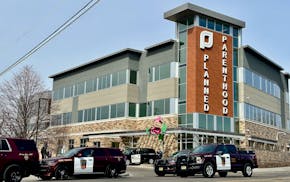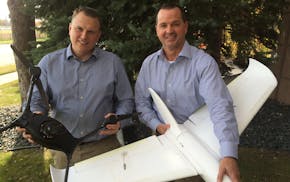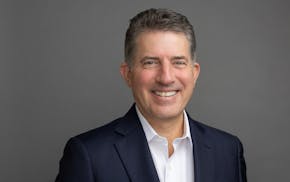Brandon Charboneau first got cranked on politics when he ran for class president in the fifth grade.
The sales consultant at All Energy Solar, who calls himself a "political dork," this year helped lead a first-time effort at his company to hire a voting coach. The goal: to help employees find their polling places, information on candidates and how to vote by mail or at early-voting locations.
"We see it as an important corporate value," said Charboneau, who floated the idea to the St. Paul-based company's four-member policy team. "Participation in democracy is important."
Advocates have long called to make Election Day a national holiday, as it is in many countries. Congress has taken no action, however, leaving businesses and employees to take their own steps.
An effort at ElectionDay.org has signed up more than 600 companies, from dentists and veterinarians to giants such as Airbnb and Shake Shack. Starting with just 150 companies when the website launched in 2018, participating companies pledge to give employees time off to vote or distribute information on voting.
One suggestion that ElectionDay.org gives employers: schedule no meetings on Tuesday.
Walmart this year gave 1.5 million U.S. workers up to three hours paid time off to vote. Starbucks provided flexibility to plan time off with managers for its 200,000 baristas. Coca-Cola, Twitter and Cisco are among those paying a full day off. Canada Goose is closing its Mall of America store so employees can vote Tuesday.
Richfield-based Best Buy Co. Inc. decided to open its stores at noon on Tuesday, two hours later than normal, as a way to give workers time to hit their neighborhood polling booths. And for the first time, the retailer provided paid time off for anyone who wanted to volunteer as a poll worker.
"It's part of our broader commitment to support all employees however they choose to participate in the day, whether that is through voting or volunteering to have their voices heard," the company said.
Target Corp. is among the participants in an effort called Time to Vote, described as a nonpartisan, business-led initiative to ensure that workers don't need to choose between voting and earning a paycheck. Businesses agree to give employees access to information about early voting and vote-by mail and to provide paid time off on Election Day.
Target provides paid time off to vote and volunteer at the polls for all of its 350,000 employees and this year it also will provides free rides to polling places from Lyft.
For the first time, the Minneapolis-based company worked with the League of Women Voters to create a dedicated website for Target employees, called Vote411.org that a company spokeswoman said has been accessed "hundreds of thousands of times," proving to be one of the more popular resources the retailer made available.
Target is also among the Twin Cities companies giving workers free child-care services at a center or in their homes to vote. The benefit is extended through child care provider Bright Horizons, which also is one of the nation's largest provider of employer-sponsored child care benefits.
Jamie Nelson, vice president of client relations at the Watertown, Mass.-based company, said the election season has proved to be one more way that employers have "doubled down their efforts" to help families in the age of COVID.
"We've been providing backup care for more than 30 years, so it's probably not the first time the employee has used backup care to go out and vote," Nelson said. "COVID especially this year has made people lean into their employers in a bigger way. We've seen employers really step up on how they're supporting working parents."
Confusion abounds this year, prompted by health risks of voting during the coronavirus pandemic, lawsuits over mail-in ballots and long lines at early in-person voting sites.
Yet so far, more than 23 million Americans have cast votes ahead of Election Day. The nation is on pace for historic levels of voter turnout.
Michael Allen, the co-founder and chief executive at All Energy Solar, is going for 100% voter participation from his workforce of around 150 people.
With employees in five states, company leaders made sure employees knew where to learn more about their local elections, with links to voter guides and other resources.
Allen estimates that as many as 20% of his workers are young enough that they might be voting in a presidential election for the first time. Deciding to hire a "voter concierge" was a fun and fruitful effort, even though it raised some eyebrows at first.
"They quickly realized we weren't tell them what to do," he said. "The reality is that a lot of people just need basic information."
Jackie Crosby • 612-673-7335
Twitter: @JackieCrosby

Planned Parenthood North Central States to lay off 66 workers, restructure presence in Minnesota

John Deere buys St. Paul precision ag company Sentera
New virus is wiping out Minnesota turkey flocks, costing farmers $112M so far

Part of the family for 75 years, 19th-century house near Lake Minnetonka listed at $2M

